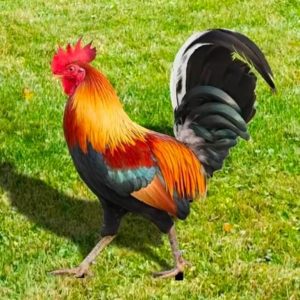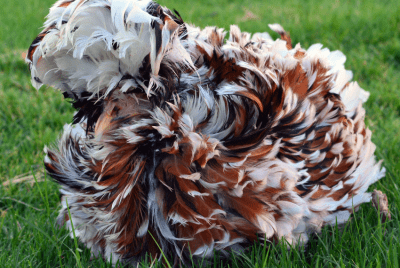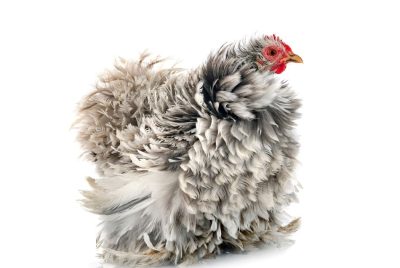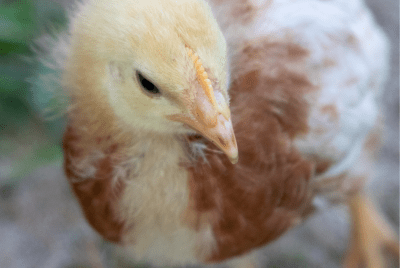Welsummer Chickens
Welsummer Chickens
1. Introduction: Welsummer Chickens
1.1 Welcoming Welsummer Chickens into Your Flock
Welsummer chickens being added to your flock, would mean embarking on the delightful journey of receiving some of the largest brown eggs you could imagine. It promises a visual treat but also a consistent source of vibrant eggs. Welsummer Chickens with their chestnut-red feathers and amiable nature, quickly become cherished members of any backyard. Their unique characteristics and active foraging habits make them a joy to observe. In this section, we’ll explore the initial steps and considerations to ensure a warm and inviting welcome for these feathered friends into your poultry family.
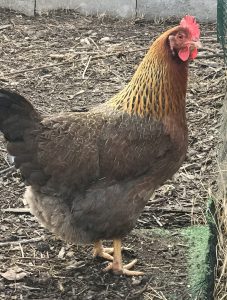
2. Understanding Welsummer Chickens
2.1. A Closer Look at Their Characteristics
2.2. The Allure of Welsummer Chickens Striking Appearance
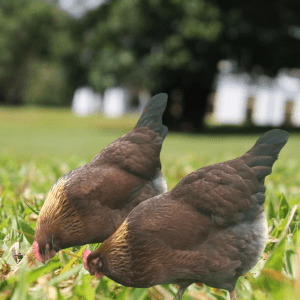
3. Eggstraordinary Egg Facts about Welsummer Chickens
3.1. The Beautiful Dark Brown Eggs of Welsummer Chickens
3.2 . Many Eggs Can You Expect Annually from your Welsummer Chickens?
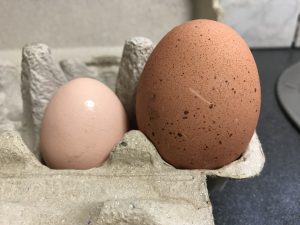
4. Caring for Your Welsummer Chickens
4.1. Best Practices for Welsummer Chicken Care
Caring for Welsummer chickens involves a combination of attentive practices to ensure their well-being and happiness. Regular health checks are paramount, monitoring for signs of illness and addressing any concerns promptly. Providing a spacious and predator-proof coop, coupled with adequate ventilation, creates a secure environment. As social birds, Welsummers thrive when allowed to express natural behaviors, so ample space for foraging is essential. Additionally, ensuring a clean living environment and practicing biosecurity measures contribute to the overall health and vitality of your flock. By embracing these best practices, you cultivate an environment where Welsummers can flourish and become cherished members of your backyard community.
4.2. Feeding and Nutrition Tips for Eggcellent Results
To optimize the egg production of Welsummer chickens, a well-balanced diet is crucial. A high-quality layer feed, enriched with essential nutrients, provides the foundation for healthy egg development. Supplementing their diet with calcium supports the formation of strong eggshells. Welsummers also enjoy foraging, so incorporating a variety of grains, greens, and insects enhances their nutritional intake. Adequate access to fresh water is paramount for overall health. By understanding and meeting their dietary needs, you not only ensure optimal egg production but also contribute to the overall vitality and happiness of your Welsummer flock.
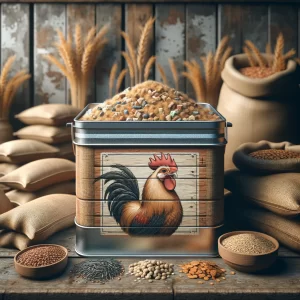
Homemade Welsummer Chickens Feed Recipe
Creating a nutritious homemade feed for Welsummer chickens ensures they receive a well-balanced diet, promoting optimal health and egg production. This recipe incorporates essential nutrients for your flock’s overall well-being.
Ingredients:
Grains Mix:
4 cups of whole corn
3 cups of oats
2 cups of barley
1 cup of wheat
Protein Boost:
2 cups of soybean meal
1 cup of sunflower seeds
1 cup of dried mealworms (rich in protein)
Calcium Supplement:
1 cup of crushed eggshells (cleaned and baked to remove any bacteria)
Vegetable and Fruit Mix:
2 cups of finely chopped leafy greens (kale, spinach, or Swiss chard)
1 cup of grated carrots
1 cup of chopped fruits (apples, berries, or melons)
Vitamin and Mineral Blend:
1 tablespoon of poultry vitamin supplement
1 tablespoon of poultry mineral supplement
Instructions:
Grind the Grains Mix:
Use a grain grinder to create a coarse mix of whole corn, oats, barley, and wheat.
Prepare Protein Boost:
Combine soybean meal, sunflower seeds, and dried mealworms in a mixing bowl.
Add Calcium Supplement:
Crush eggshells finely and add them to the mix. Ensure the eggshells are thoroughly cleaned and baked to maintain hygiene.
Mix in Vegetable and Fruit Blend:
Incorporate finely chopped leafy greens, grated carrots, and a variety of fruits into the mixture.
Blend in Vitamin and Mineral Supplements:
Sprinkle poultry vitamin and mineral supplements evenly across the mixture.
Thorough Mixing:
Mix all the ingredients thoroughly to ensure an even distribution of nutrients.
Storage:
Store the homemade feed in a cool, dry place in a sealed container to maintain freshness.
Feeding Instructions:
Provide approximately 1/4 to 1/3 pound of homemade feed per Welsummer chicken per day.
Adjust the portion based on additional foraging or supplemental treats.
Always ensure access to clean, fresh water.
By offering this homemade feed, you provide your Welsummer chickens with a well-rounded and natural diet, fostering their health, vibrant plumage, and robust egg production. Adjust quantities based on the size and age of your flock, and observe their health and behavior to fine-tune the feed as needed.
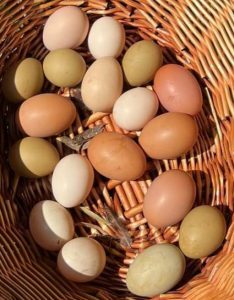
5. Creating the Perfect Home
5.1. Housing Requirements for Happy Hens
Creating a comfortable and secure living space for Welsummer chickens is essential for their well-being and contentment. The coop should be well-ventilated to ensure proper airflow, preventing issues like respiratory problems. Construct a predator-proof structure, including sturdy walls and a secure roof, to safeguard your flock. Allow at least 2 to 3 square feet of space per chicken to ensure they have ample room to move and roost comfortably. Providing outdoor access for foraging and dust bathing completes the ideal living arrangement, allowing your Welsummers to express their natural behaviors and thrive in a stress-free environment.
5.2. Boxes: Cozy Corners for Egg-Laying Bliss
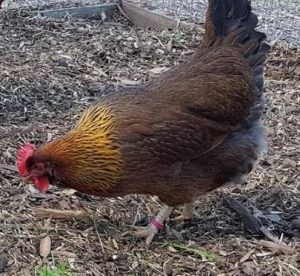
6. Ensuring Hen Health
6.1. Regular Health Check-ups and Signs to Watch For
Ensuring the well-being of your Welsummer flock involves regular health check-ups and vigilant observation. Conduct routine examinations, checking for signs of illness such as lethargy, abnormal feathering, or changes in behavior. Monitor their eyes, comb, and vent for any abnormalities. Keep a keen eye on their droppings as changes can indicate health issues. Promptly address any concerns by consulting with a poultry veterinarian. Regular health check-ups contribute to early detection and effective management, promoting the overall vitality of your Welsummers.
6.2. Measures for a Healthy Flock
Implementing robust biosecurity measures is vital to safeguard your Welsummer flock from potential diseases. Control access to your flock area, limiting exposure to outsiders and wild birds. Quarantine new additions to the flock before integrating them. Clean and disinfect equipment and coop regularly to prevent the spread of pathogens. Provide foot baths at entry points to minimize the risk of contamination. Maintain strict hygiene practices, including handwashing, to avoid transmitting diseases. By prioritizing biosecurity, you create a resilient defense against potential health threats, fostering a healthy and thriving Welsummer flock.
7. Delving into Breeding
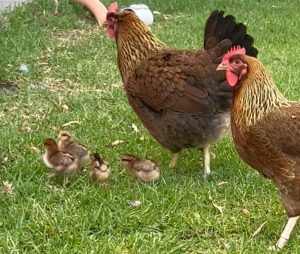
7.1. Tips for Successful Welsummer Chickens Breeding
Welsummers are not an auto-sexing breed; however, they are often considered color-sexable at hatch due to distinct differences in chick down coloration and patterns. Female Welsummer chicks typically display darker down with a well-defined “V” marking on the head and pronounced stripes on the back, resembling a chipmunk pattern. Male chicks tend to have lighter down and less distinct markings. These differences allow for early sex identification, although it’s not as reliable as in true auto-sexing breeds.
Embarking on Welsummer chicken breeding is a rewarding endeavor with the right approach. Start by selecting healthy breeding pairs with desirable traits. Monitor their overall health and productivity, ensuring they meet breed standards. Create a conducive environment for mating by providing ample space and minimizing stress factors. Allow natural mating to occur, but be prepared to intervene if needed. Collect and store eggs carefully for successful incubation. Regularly assess the health and vigor of chicks. By following these tips, you enhance the likelihood of successful Welsummer breeding and contribute to the vitality of future generations in your flock.
7.2. Maintaining Genetic Diversity for a Thriving Flock
8. Conclusion
8.1. Welsummers: A Beautiful Addition to Your Backyard Flock
In conclusion, Welsummer Chickens undoubtedly make a beautiful and enriching addition to any backyard flock. With their vibrant chestnut-red feathers, friendly demeanor, and striking egg-laying capabilities, these chickens bring both visual delight and practical benefits. From their charming appearance to the joy of collecting their unique dark brown eggs, Welsummers quickly become cherished members of the family. By following best practices in care, feeding, and breeding, you can ensure their happiness and longevity. Welsummers not only enhance the aesthetics of your flock but also contribute to the overall dynamic, creating a backyard haven filled with color, character, and the delightful sounds of contented clucks.
If you would like to know how to reduce your feed bill by half click on this link. It will require your exuberance and excitement to get it done. It’s a worth task that leads to health and good nutrition.
FAQs
1. How often do Welsummer chickens lay eggs?
Welsummer chickens typically lay eggs around 3 to 4 times per week.
2. What is the average lifespan of Welsummer chickens?
3. Do Welsummer chickens require special dietary supplements for optimal egg production?
4. Can Welsummer chickens thrive in colder climates?
5: Are Welsummer chickens suitable for beginners?
